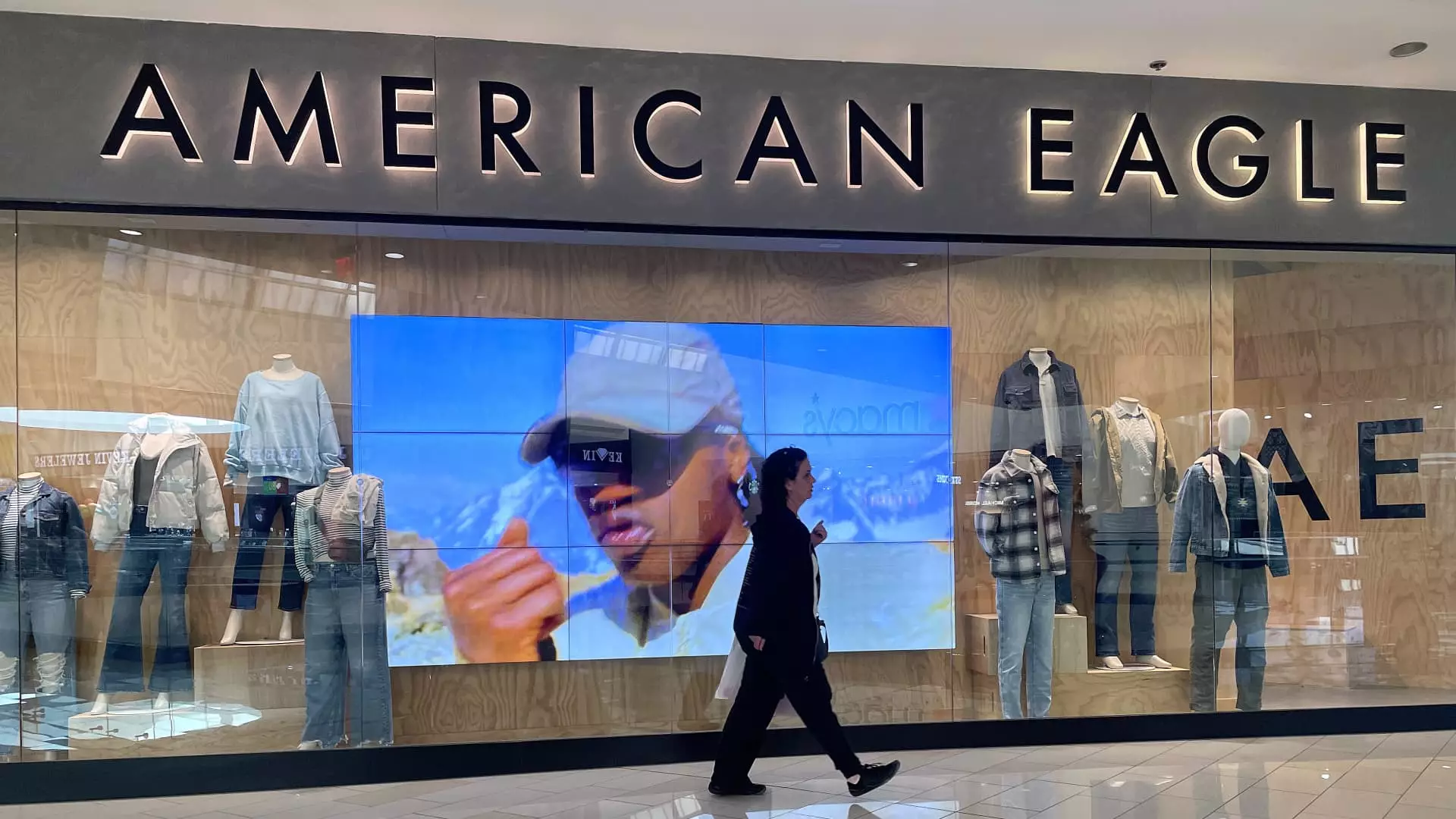American Eagle Outfitters (AEO) has taken a bold legal stance against Amazon, alleging that the e-commerce giant is infringing on its trademarks by utilizing unauthorized branding from its popular Aerie clothing line. In a lawsuit filed in the U.S. District Court for the Southern District of New York, AEO accuses Amazon of engaging in deceptive practices that mislead consumers into believing they are accessing authentic Aerie products, when in fact they are faced with what the retailer characterizes as “inferior quality knock-offs.” This litigation highlights the ongoing struggle between established brands and massive online marketplaces, where counterfeiting issues have become increasingly prevalent.
At the heart of the lawsuit lies the assertion that Amazon is using Aerie’s trademarks—specifically the names “Aerie” and “Offline by Aerie”—to attract shoppers indirectly. American Eagle claims that these actions not only confuse consumers but also drive traffic away from their official channels. AEO insists that they never granted Amazon permission to sell their products, highlighting their strategy to cultivate a distinct brand identity and customer experience through official sales channels.
Further complicating matters, the lawsuit suggests that upon searching for Aerie items on Google, consumers are redirected to Amazon’s platform, where they find a range of deceptive products that bear only the likeness of genuine Aerie apparel. This includes a variety of items, from yoga pants to loungewear, but allegedly misleadingly marketed under similar branding that intentionally alters the Aerie name to obscure its origin. Words like “Aeries” and “Arie” serve as unattributed variations that AEO claims deceive shoppers into thinking they are purchasing legitimate Aerie merchandise.
This lawsuit is not an isolated event; rather, it is a reflection of a broader systemic issue within online retail environments. Amazon’s marketplace, which is popular among millions of small and large sellers, has, over the years, attracted scrutiny for its lax control regarding third-party sales. The high volume of counterfeit merchandise being sold under the guise of reputable brands continues to deteriorate brand trust and customer loyalty.
Similar cases have emerged previously, with brands like Birkenstock and Daimler AG voicing their discontent over the proliferation of counterfeit goods on Amazon. These famous brands have taken drastic action, including ceasing sales on Amazon altogether due to legitimate fears surrounding their intellectual property. Such maneuvers paint a concerning picture not only for consumer confidence but also for the ethical responsibilities of platforms like Amazon, which must balance profitability with accountability.
In response to growing complaints, including this recent lawsuit from AEO, Amazon has asserted a commitment to battling counterfeits on its site. The company has introduced a series of initiatives aimed at bolstering brand protection, including hiring dedicated teams to pursue counterfeiters and implement tools that support trademark enforcement. However, inefficiencies still exist, as evidenced by the litigation American Eagle has brought forth.
Despite these efforts, the persistent nature of counterfeiting in digital marketplaces presents a complex challenge. While Amazon maintains it prohibits the sale of counterfeit merchandise, the sheer volume of transactions processed through its platform complicates enforcement. As AEO seeks financial recompense and an injunction against Amazon, it calls into question the effectiveness of preventative measures employed by online retailers to mitigate risks associated with counterfeit goods.
The case underscores the imperative for brands to carefully navigate their online presence and engage in vigorous protection of their intellectual property. As consumers increasingly gravitate towards digital shopping, the integrity of brand identity becomes crucial. Companies may need to reevaluate their distribution strategies, ensuring that they preserve the authenticity of their products while aligning broader digital marketing efforts with vigilance against unauthorized sales.
The American Eagle vs. Amazon case exemplifies a pivotal moment in the ongoing discourse regarding online sales, brand integrity, and consumer protection. As the marketplace continues to evolve, brands must arm themselves with strategies that address these challenges head-on while fostering genuine relationships with their consumers.


Leave a Reply